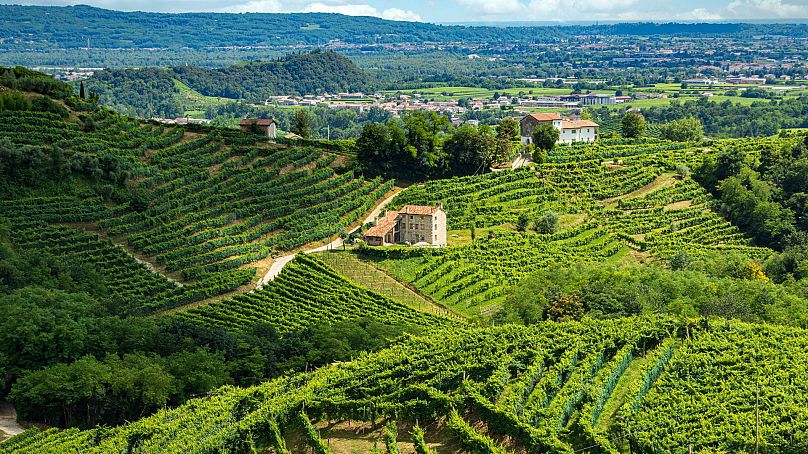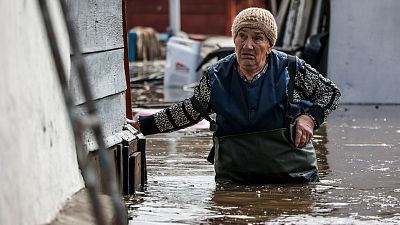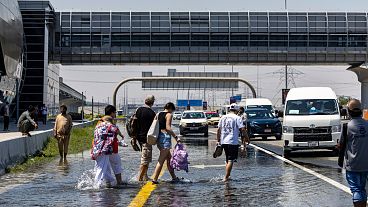Some of Europe’s favourite wines could be wiped out by climate change, experts have warned.
Climate change could wipe out Prosecco and other popular European wines, new research has warned.
Prosecco - a sparkling white wine produced in Italy’s mountainside vineyards - is one of the continent’s most beloved drinks.
But grape yields are dwindling, devastated by a deadly combination of extreme weather and soil degradation.
A new analysis - published in the iScience journal last month - describes the harvest as “fragile and under threat.’
"The risk is not only losing an agricultural product or seeing a landscape change, negatively impacting the local economy,” says the study’s lead author Dr Paolo Tarolli from the University of Padova in Italy
"The risk is losing entire communities' history and their cultural roots."
Other vintages like Burgundy, Grand Cru and Cabernet Sauvignon could also be under threat.
Why is Prosecco under threat?
Extreme weather is making life hard for Prosecco producers.
Sudden, intense rainfall events trigger sudden soil erosion and “slope failures” - when the earth slides away - in the steep vineyards of Northern Italy.
Drought is another issue, making crop irrigation extremely difficult.
This year, Prosecco producers were inundated with massive spring rainfall and hailstones, followed by a swelteringly hot summer.
The unstable weather - triggered by climate change - could reduce the Italian wine grape harvests by up to a fifth, producers estimate.
Why is Prosecco grown on the side of a mountain?
Prosecco’s unique flavour comes from its high-altitude origin.
Mountain-grown grapes are smaller and have a higher ratio of skin to juice giving them an intense flavour. They also get a lot of sun - but the cool temperatures of high altitude prevent them from baking.
Demand for the crop is huge, surging by more than 33 per cent in five years. By comparison, demand for French champagne grew by just one per cent over the same period.
But harvesting a crop in such high-altitude locations isn’t easy. Recognising the difficulty, the practise of raising grapes on slopes steeper than 30 per cent is named “heroic viticulture”.
Demographic changes and an exodus of people from rural areas have led to a serious workforce shortage in the mountains, Dr Tarolli says.
The ravages of climate change will make recruiting the next generation of vitners much harder.
“The new generation is unwilling to continue working under extreme conditions if economic benefits are insignificant,” Dr Tarolli warns. .
What other crops are under threat from climate change?
It’s not just grapes - climate change is decimating crops around the world.
Rice in northern Italy, olive oil in Spain and barley in the UK have all seen dramatic decreases in yield over the past few years due to environmental conditions.
The Intergovernmental Panel on Climate Change (IPCC) has warned that if we reach 1.5°C of warming, around 8 per cent of the world’s farmland will become unsuitable for agriculture.
There’s a 66 per cent chance that the annual global average temperature will hit 1.5 ºC above pre-industrial temperatures at some time in the next five years, according to a World Meteorological Organization report released in May.




